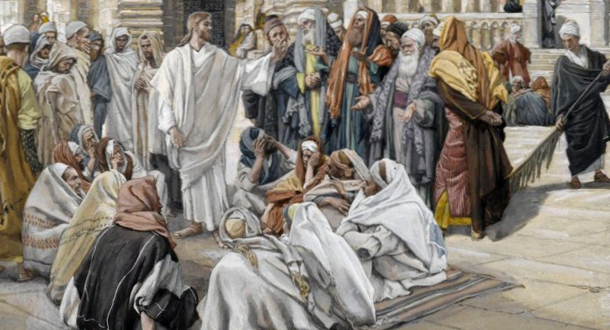
Scripture:
Colossians 1:24-2:3
Luke 6:6-11
Reflection:
For many today, keeping the Sabbath seems like a quaint Jewish tradition. But for Jesus’ contemporaries, and even today, the Sabbath has been a powerful symbol of identity in an often hostile world. The Sabbath is a sign to all that they are God’s special people.
In Jesus’ time, Jews strongly emphasized keeping the Sabbath because only a few hundred years earlier, Jews had been exiled from their land for disobeying God’s laws. Consequently, they carefully and sometimes scrupulously defined what “work” meant and what activities were forbidden. However, religious leaders could set aside Sabbath rules if human life was in danger. However, certain types of non-death-threatening healing activities were prohibited.
Even Jesus did not generally heal on the Sabbath. In keeping with tradition, Jesus too would wait until after the Sabbath had ended at sunset to perform healings.”
Why, then, did Jesus heal a man’s withered right hand on the Sabbath and among a synagogue community? In chapter 5, Luke tells us. “The Son of Man is lord of the sabbath” (v. 5). Jesus clearly declares his superiority over sabbath laws and can authoritatively interpret them. Luke composed his gospel, which included Jewish Christians, primarily for Gentile converts and other marginalized peoples.
These were the ones who needed to hear Jesus’ Christological affirmation. They were the ones who needed to be reminded of Jesus’ words at the beginning of his ministry when he read the Isaiah scripture passage: “The Spirit of the Lord is upon me because the Lord has anointed me to bring good news to the poor…” (Is. 61:1). Then Jesus pronounces unambiguously that this scripture has been fulfilled in the synagogue community’s hearing.
Sabbath rest remains a sound principle today for everyone. We all need rest, true rest from all that distracts or distresses us. We need quiet time with God. Only then can we hear Christ calling us to proclaim the good news to the poor, the marginalized, those whose souls and hearts may have withered by life’s circumstances.
Deacon Manuel Valencia is on the staff at Mater Dolorosa Passionist Retreat Center, Sierra Madre, California.
